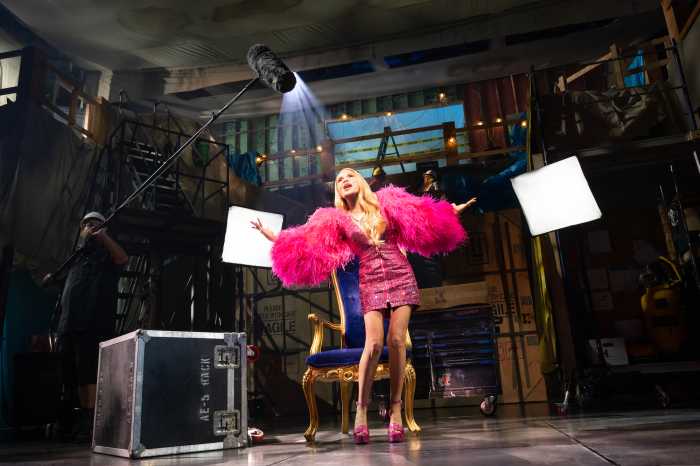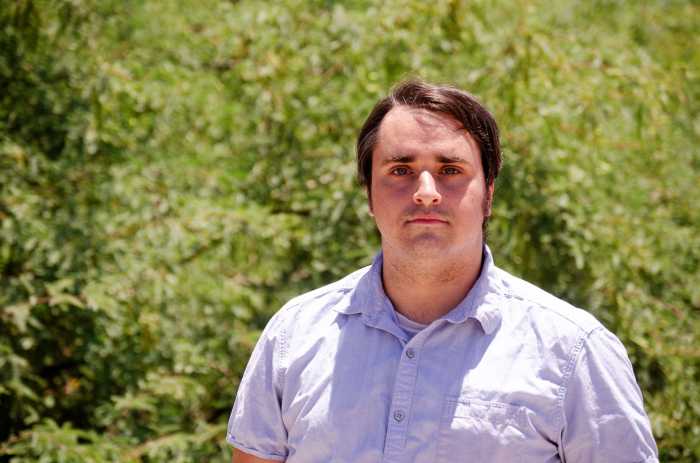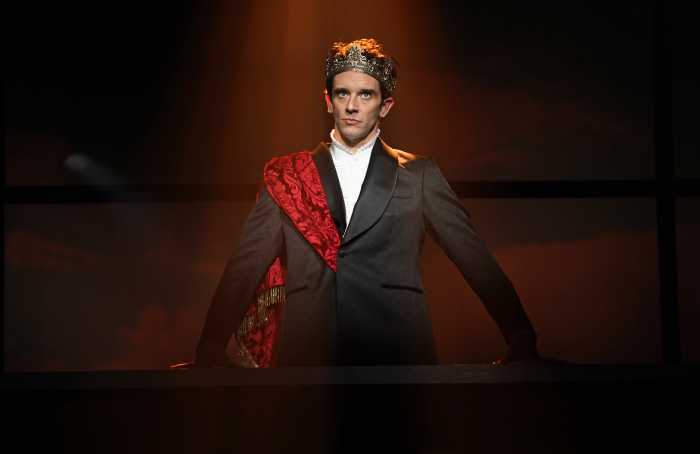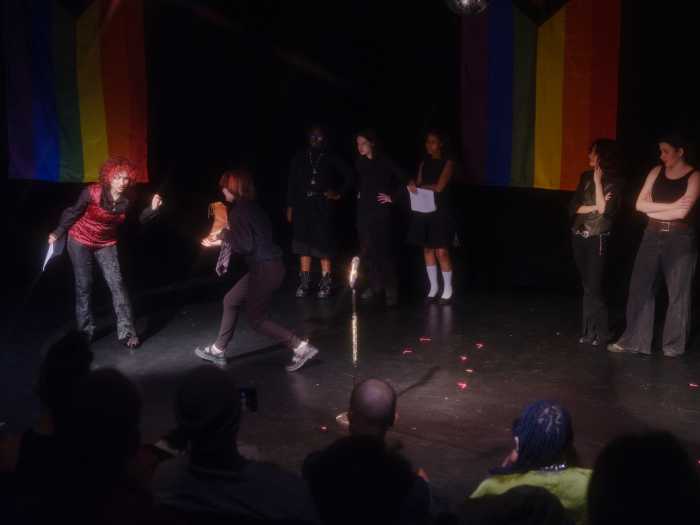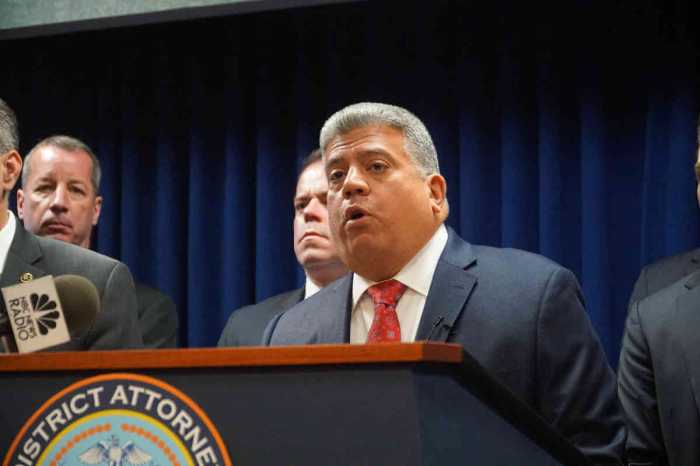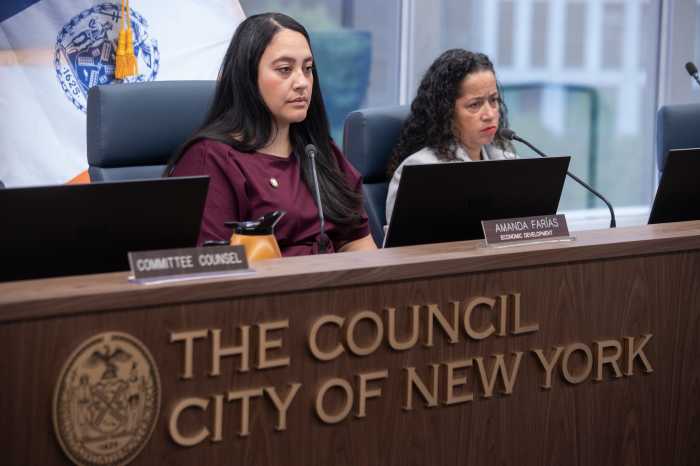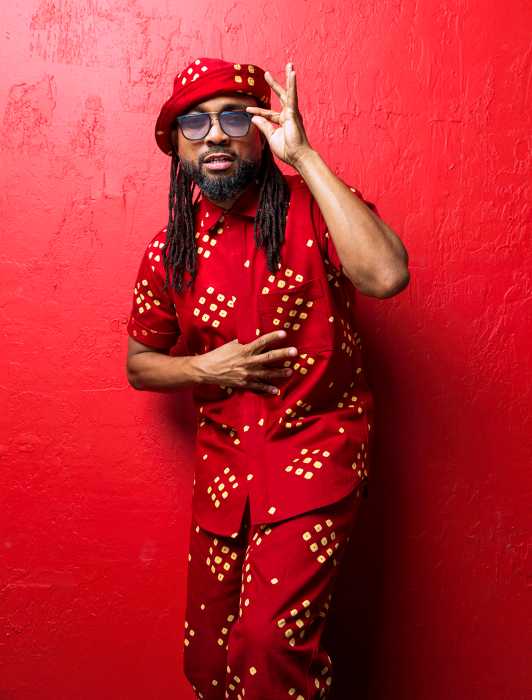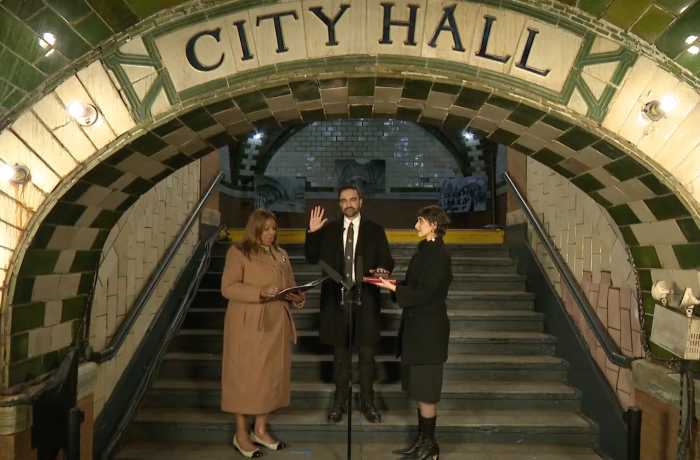In “The Ghosts of 14th Street,” lesbian playwright Barbara Kahn looks back at New York City circa 1908, when 14th Street was entertainment central. Through the lives of a pair of married actors, a dandy, a talented brother and sister, an immigrant maid and her gangster husband, and an African-American dancer, Kahn attempts to render life back when vaudeville was king, blackface was the norm, and no actor worth his salt would be caught performing in the “flickers.”
On set at the Biograph Studio, stage actor Edward J. Thornton III (Dan Burkarth) and his young wife Vera (Jocelyn Adams) film scenes of a one-reeler in which a bookstore patron, played by the Peter Lorre-esque Danny Cortez (Robert Gonzales, Jr.), saves a comely clerk from a handsome villain (Matt Lara). Making clear he really doesn't approve of this “light show that makes a mockery of the English language by staying silent,” Ed tries to hold onto the vestiges of a long theater career plagued by the scandal of his alleged affair with another actor's wife.
THE GHOSTS OF 14TH STREET
Theater for the New City
155 First Ave. at E. Ninth St.
Thu.-Sat. at 8 pm., Sun. at 3 p.m.
Through Mar. 30
$12; 212-254-1109
When the shoot wraps, Danny and his pianist sister Tess (Victoria Levin) stay after to work on their new song-and-dance routine, with hopes of vaudeville success. But seductive villain Al catches Danny's eye, and the men head over to a Third Avenue gay club, the Slide, leaving a frustrated Tess to vent, “Some men are mongrels!” Ukrainian immigrant maid Lily Rabinowitz (Mallory Portnoy) agrees that men are indeed “Mongols,” and begins her own naive flirtation with the sad beauty.
Barbara Kahn looks at New York theater when it was young and gay.
Yet when Tess kisses her, Lily balks saying she is not “like that,” to which Tess sharply retorts, “Don't give roses to a woman if you're not like that.” Lily has a gangster husband, Jake Rabinowitz, aka “Dutch” (Dan McVey), whom she married under duress in an arranged union. When Dutch pursues her on the set, Lilly is aided by Tess and Danny, along with her own “brother,” Harlem dancer Philip “Pip” Gibson (Larray Grimes), at whose mother's boarding house she lives. Gibson is thrilled at having won a stage contract freeing him from having to continue performing in blackface, but his joy is short-lived — Dutch's pals from the Lenox Avenue gang soon turn up to bust him up for helping Lily.
Lily's theater gang concocts a far-flung plan to free her from Dutch that involves cross-dressing and the vaudeville number “Yiddishe Yankee Doodle Boy.” A convoluted set-up ensues on stage at the Olympic Theater, featuring Lily in costume as a young Orthodox Jew who delivers a note to Dutch saying that she has moved to Argentina, which he accepts without question. A skit parodying stereotyped New York immigrants in an ESL class comes next, followed by a dance number from Pip and the screening of the one-reeler the actors filmed earlier.
The multi-media aspect is a nice touch, but as the play closes with the actors singing, “Shine On, Harvest Moon,” too many loose ends are left. Why Lily risks being unmasked when she delivers the note to Dutch, rather than having someone else do the deed, remains unexplained. A romance blossoms between Tess and Lily, who move in together, but that story line is put on ice. Similarly neglected is the plotline of Danny and Al, as they enjoy the company of each other and explore a city “full of men like [them] and places [they] can go, like the Slide.”
The specific reason the Thorntons are introduced into the story is also unclear; their only function seems to be to demonstrate the slowly changing racist attitudes of old New York and how moving pictures affected the acting profession. The presence of a pair of stagehands (Kyle Wood and Jake Nicholson), who spend the course of the play attempting to win a New York Times limerick contest, is also puzzling.
Meanwhile, the relationships of those characters Kahn has given us reason to care about – the gay and the lesbian couples — remain frustratingly unresolved.
These shortcomings are unfortunate, especially given the talented cast, a visually compelling set, and the simple but serviceable period costumes. Kahn's episodic collection of sitcom-like sketches may be intended as commentary on the parallels between vaudeville and silent films, but if so some restructuring would be helpful. That might enable the play to rise above a disparate series of skits to function as a bridge between the gay heyday of New York's old 14th Street entertainment district and the city we know today.

